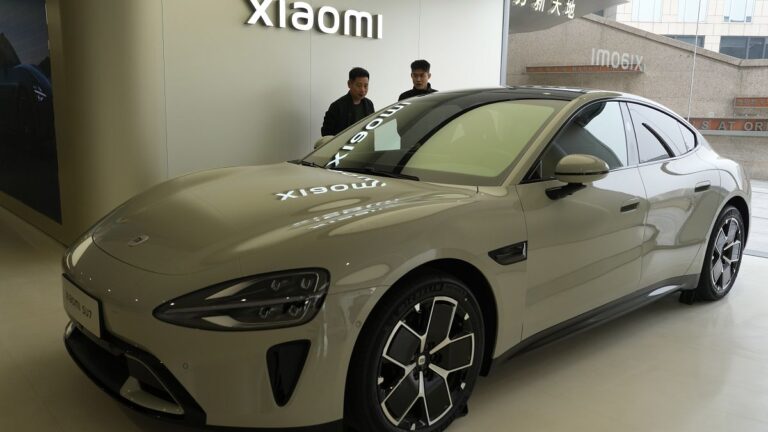The European Court of Auditors has strongly denied political intentions behind a decision that warned that an impending ban on the sale of conventional petrol and diesel cars could lead to an influx of electric car imports from China.
In an unusual move, EU auditors did not address dependence on foreign suppliers for the raw materials and batteries needed to produce electric cars, leaving the EU stuck with a de facto ban on petrol and diesel cars in 2035. He warned that doing so would put the EU’s industrial sovereignty at risk.
Recent revisions to CO2 standards for cars and vans set tailpipe emissions limits to zero from 2035, marking the end of the previous 15 years of increasingly stringent emissions standards. “Did this contribute to reducing real-world vehicle emissions in line with the EU’s green goals?” asked ECA Commissioner Nikolaos Milionis.
“The answer is absolutely no,” the EU auditor said as he was briefed by journalists via video link from Luxembourg today (April 22), flanked by three of his colleagues.
Auditors reviewed reports issued over the past three years, including a critical assessment of electric vehicle charging infrastructure, efforts to promote domestic battery manufacturing, trends in vehicle CO2 emissions, and, most recently, potential biofuel production. The survey results were utilized.
Milionis said that although technically neutral in theory, the 2035 emissions standards would mean that biofuels produced using renewable electricity and so-called e-fuels would not allow the continued use of internal combustion engines. It said this meant electric vehicles were the “only viable alternative” despite claims that it would be possible. engine.
Annemie Tertelboom, another member of the court, made it clear that Europe’s environmental policies were likely to backfire. “Frankly, Europe faces a challenge,” Turtelboom said. “How can the Green Deal meet our climate goals without undermining our industrial policies or increasing costs for European consumers?”
Referring to the ECA’s report on batteries, Tertelboom said: “Either the 2035 target is not achieved or it will only be achieved by importing cars from China and the US, in fact mainly from China. ” he said.
Reporters have asked why this is a politically sensitive area of EU policy, against the backdrop of the backlash against the European Green Deal, which is already part of the political debate just weeks before European Union elections. I repeatedly asked the audit committee members whether they had taken the unusual step of issuing such a warning. . They denied there was any motive beyond drawing attention to potentially conflicting policy goals.
The timing was coincidental, auditors argued. “It’s like a synthesis presentation of four consistent issues,” Milionis said. EU officials based in Luxembourg also denied when asked directly that they had had any recent discussions with auto industry players. Lobbyists in Brussels have long argued that the EU is moving too quickly to phase out fossil fuel-powered cars.
“It is clear that the European Commission needs to update its battery strategy,” said Alfonso de Castro Malheiro, another ECA official. He acknowledged that the European Commission has made significant efforts to establish trade partnerships with potential suppliers of critical raw materials.
But this has been the message “at least since 2008,” Malheiro said. “Yet the reality is that we are still highly dependent on a limited number of countries.”
Turtelboom said 2026 will be a “pivotal year.” This year, under the CO2 standards regulations, the European Commission will have to assess progress towards meeting the 2035 target and consider adjustments if necessary.
“The EU does not hold all the cards when it comes to vehicle electrification. Access to raw materials, costs that must be borne by industry and citizens, and lack of infrastructure could be a losing bet,” Turtelboom said. Stated. Separately in a statement released by the court.

